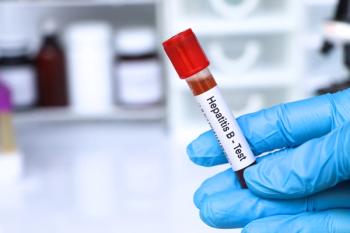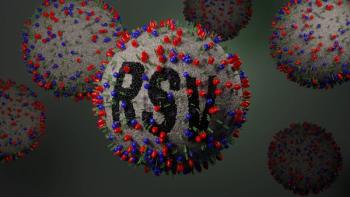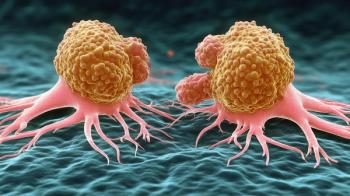
The authors note that this lack of inclusion can leave important safety and efficacy questions unanswered.

The authors note that this lack of inclusion can leave important safety and efficacy questions unanswered.

Gaps in education about biosimilars, particularly among pharmacists, patients, and prescribers, are a significant barrier to wider adoption.

Tanshinlactone is an active ingredient that is commonly used in Chinese herbal medicine.

The long-term durability of response will be evaluated in the B-Sure trial (NCT04954859), which will enroll patients with hepatitis B virus (HBV) from B-Together (NCT04676724).

Curbing RSV and its complications can reduce health care costs associated with its treatment.

Melody Smith, MD, MS, discusses how microbiome modulation may influence CAR T-cell therapy toxicity and outcomes, highlighting potential future interventions and clinical integration challenges.

The approach targets cancer glucose and fatty acid metabolism, which is essential for cancer cell growth.

SkinTE could aid Wagner grade 1 diabetic foot ulcers by regenerating and activating the tissues surrounding the wound to heal it completely.

Plasma therapy can involve burdensome procedures and infusions for patients, but pharmacists can use their expertise to make the process easier and more convenient.

Using chromosome genomic array testing in combination with existing risk stratification models can better determine patients with myelofibrosis who can benefit from transplant.

The new data demonstrates the effectiveness of Mim8 in children with hemophilia A regardless of inhibitor status, expanding the populations in which the novel drug in development could have a treatment benefit.

67Cu-SAR-bisPSMA is indicated for adult patients with prostate-specific membrane antigen (PSMA)-positive metastatic castration-resistant prostate cancer (mCRPC).

Treatment with semaglutide yielded superior effects on drinking outcomes compared with existing therapies to reduce alcohol cravings.

Using central obesity measures provides more accurate estimates of the proportion of CRC cases attributable to excess weight compared to using BMI alone.

There was an association observed between fluctuating low-density lipoprotein cholesterol and the risk of developing dementia and cognitive impairment.

T-DXd has a boxed warning for interstitial lung disease and pneumonitis.

The test offers an accurate, fast, low-cost, and noninvasive tool for early diagnosis of pancreatic ductal adenocarcinoma.

Pharmacists play a vital role in supporting patients with endometriosis through guidance on treatment options and managing side effects.

These findings may lead to new therapies to help reduce the risk of heart disease in women who are at risk.

Coinfection with RSV and hRV is linked to a higher prevalence of lower respiratory tract infections, according to new data.

Although larsucosterol did not show statistical significance, it showed clinically meaningful trends in 90-day mortality in patients with severe alcohol-associated hepatitis.

Nivolumab demonstrated a sustained disease-free survival benefit over placebo in high-risk muscle-invasive urothelial carcinoma (MIUC).

The data were presented at the 2025 ASCO Genitourinary Cancers Symposium.

Pharmacists can support patients with treatment education, monitoring, and adherence, helping to overcome challenges posed by cognitive decline.

The authors suggest future research should consider inflammation and the gut as potential therapeutic targets improve depression in patients with chronic kidney disease (CKD).

Invasive meningococcal disease is a severe bacterial infection caused by the bacterium Neisseria meningitidis, often leading to meningitis or sepsis.

Data from the phase 2 CABRAMET trial suggests the potential of cabozantinib for treatment of brain metastases from renal cell carcinoma (RCC).

Enfortumab vedotin, trastuzumab deruxtecan, and disitamab vedotin were highlighted at the 2025 ASCO Genitourinary Cancers Symposium.

A one-time infusion of etranacogene dezaparvovec-drlb led to sustained bleeding control and a reduction in factor IX prophylaxis in patients with hemophilia B.

Panelists at the 2025 ASCO Genitourinary Cancers Symposium discussed challenges and new approaches to treatment.